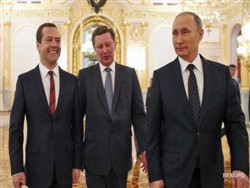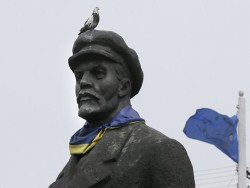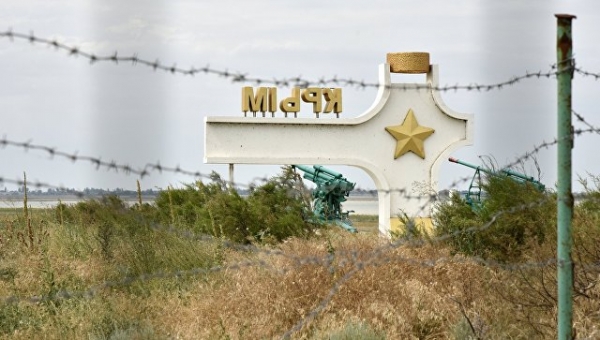
The question whether Russian President Vladimir Putin to further military action in Ukraine, are given not only in Kiev but also in the capitals of Western Europe, the Times writes.
Moscow gave the widest possible publicity to the accusations against the Ukrainian saboteurs, kotorye allegedly entered the territory of the Crimea, killing two security officials.
“It gave the Russian President an excuse to be an unexpectedly militant threat: he promised that Russia will not leave this attack unanswered,” – writes the edition.
In response to this, according to the newspaper, the Ukrainian side got nervous, brought to the border of heavy weapons and put its troops on high alert.
“These threats have become the latest in a series of steps, stunned cheerleaders and the West,” said the Times.
Previously active rapprochement with Turkey after the unsuccessful attempted coup was interpreted as Putin’s attempt to offer itself to Erdogan as an alternative to NATO.
“The Russian President believes that his vengeful Turkish counterpart offended by the leadership of the Alliance, which criticized him for the way he fought against so-called subversive elements after the attempted coup,” – said the publication.
From the point of view of the Russian leader, as suggested by the Times, it would be a great victory to embroil Turkey and NATO at a time when Ankara play such an important role in the struggle of the West against “Islamic state” and helping to curb the flow of refugees to Europe.
But as the newspaper notes, although Russia is known for that likes to pick aggression, when the world is distracted with other issues, a new war with Ukraine would have little sense, because the Kremlin does not need new sanctions, and from of old he would like to get rid of.
Most likely, says the Times, the external crisis took Putin to resolve internal problems. Russia faces parliamentary elections, although the opposition has no chance to oust the party in power, the country’s growing discontent.
The Russians, the newspaper notes, stoically endured a sharp decline in living standards, the fall of the ruble and, as a result of difficulty with international travel.
“But they don’t like high levels of corruption, they do not like the unlimited power of Putin’s cronies (although the President himself they are not inclined to blame) and they are ashamed because of a doping scandal,” the newspaper writes.
And Putin well knows that a preemptive strike is the best step continues publishing. Recently, he fired four governors, quite convincingly accused of corruption, and put in their place faithful men from the FSB. It was furnished as anti-corruption purge in the province.
“A new aggravation of relations with Ukraine can also be presented as a manifestation of firmness in the face of provocation and to freeing Putin from having to continue peace talks and to go on some concessions,” writes the Times.
The last time he decided to use an external crisis to strengthen the position in Russia, there was the annexation of the Crimea, which raised his popularity ratings above 80 percent, reminiscent of the Times.
“It is also possible that now the Kremlin is the struggle for power, an echo of which was the resignation of hardliner Sergei Ivanov, followed by the dismissal of the discredited Dmitry Medvedev, who will replace Alexey Kudrin” – the newspaper writes.
Recall, August 10, after the statements of Moscow about the alleged state terrorist acts in Crimea, Russian President Vladimir Putin said that Ukraine switched to terror and promised retaliation.
Later the media learned that one of the answer may be the rupture of diplomatic relations with Ukraine.
The Minister of foreign Affairs of Russia Sergey Lavrov said that Moscow is not interested in breaking diplomatic relations with Kiev, but this may be an extreme measure.








